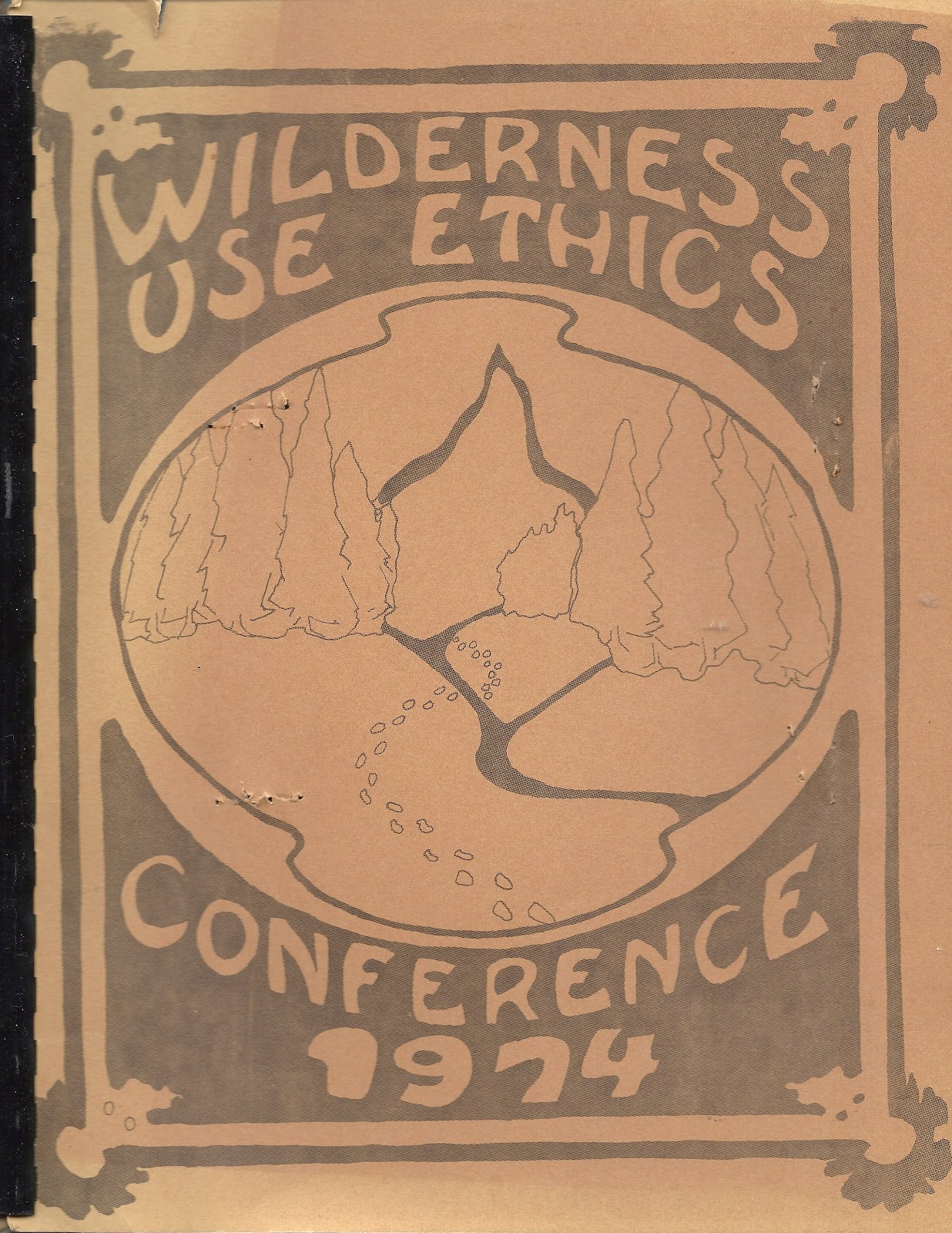I participated in and have a copy of the proceedings of this conference, but until fairly recently I could not find a reference doing a search on the Internet. Now there are a few search results you can find for it on Google for
"Wilderness Use Ethics Conference" The 74 page document is apparently available at the
University of Oregon.
This unique conference was organized by users of wilderness concerned that the vast majority of wilderness environmental energy had been going towards land classification efforts. The problem of wilderness user impact, overcrowding, human waste disposal, noise pollution and other impacts, even in sparsely used areas was on the rise and needed to be addressed. The conference was organized by the University of Oregon Outdoor Program. Bruce V. Mason, Conference Coordinator.
The Wilderness Use Ethics Conference held on April 25-28 at Mckenzie Bridge, Oregon brought together a knowledgeable and diverse group of wilderness users, managers and research personnel to discuss these issues and to encourage a management ethic that allows increased public input into wilderness and wild river management plans.
Conference participants developed nine unique model environmental wilderness projects in Idaho, Oregon and Washington that were implemented after the conference. One of these was the Lower Salmon River Cleanup in Idaho that involved over 100 people, took 3 years and received the 1976 National Environmental Award, the highest public service award that can be presented by the U.S. Department of Interior.
Project reports included in the proceedings included the following:
- Willamette River Cleanup - Mel Jackson, City of Eugene, Oregon
- Alpine Lakes Wilderness Cleanup in Washington - Mike Collins, Recreational Equipment, Inc., Seattle Washington
- Three Public Education Projects in Washington - John Miles, Western Washington State
- Human Waste Disposal Survey - Mike Saul, Sundance Expeditions, Grants Pass, Oregon
- An Environmental Practices Book - Robert R. Bostick, Oregon State University
- Public Wild River Environmental Project - Gary O. Grimm, University of Oregon
- Owyhee River Study Project - Kathleen Howes, University of Oregon
- Middle Fork Salmon River Environmental Project - Gary O. Grimm, University of Oregon
- Salmon River Cleanup - Art Pope, University of Oregon



